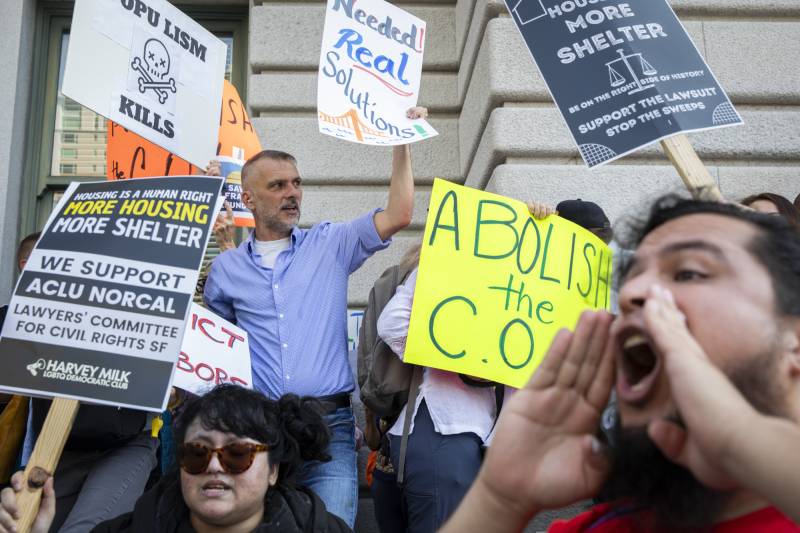The Supreme Court agreed Friday to review lower-court rulings that make it harder for cities in California and other Western states to prevent people from sleeping on the streets when there aren’t enough shelter beds available.
The justices will hear an appeal from the city of Grants Pass, in southwest Oregon, which is seeking to enforce local street-clearing ordinances. The city has the backing of California Gov. Gavin Newsom, as well as other Democratic and Republican elected officials who have struggled to deal with homelessness brought on by rising housing costs and income inequality.
It’s unclear whether the case will be argued in the spring or the fall.
The High Court’s announcement comes a day after a panel of the 9th U.S. Circuit Court of Appeals affirmed a lower-court ruling blocking anti-camping ordinances in San Francisco, where Newsom was once the mayor.
“California has invested billions to address homelessness, but rulings from the bench have tied the hands of state and local governments to address this issue,” Newsom said in a statement Friday. “The Supreme Court can now correct course and end the costly delays from lawsuits that have plagued our efforts to clear encampments and deliver services to those in need.”
A separate 9th Circuit panel ruled in the Oregon case that Grants Pass could not enforce a local ordinance that prohibits unhoused people “from using a blanket, pillow, or cardboard box for protection from the elements.” The decision applies across nine Western states, including Alaska, Arizona, California, Hawaii, Idaho, Montana, Nevada, Oregon and Washington.

